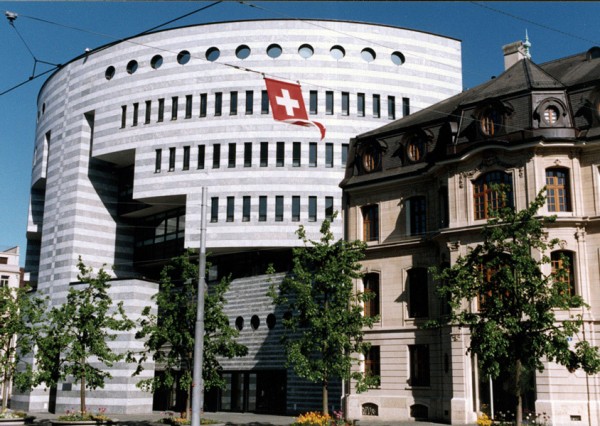
Senator Christopher Dodd will visit the Atlantic Council on Wednesday, August 4 to discuss global economic reform. For more information on the event, please click here.
After extensive political wrangling, the Dodd-Frank financial reform bill finally became law on July 21. The Wall Street Journal called it “the most sweeping overhaul of U.S. financial-market regulations since the Great Depression.” But those who think getting the bill through Congress and signed by the President was the hard part are in for a rude awakening. The real work of reforming our financial system, both nationally and globally, is just beginning.
Despite being 2,315 pages in length, Dodd-Frank contains few specific guidelines on how to enact and enforce its provisions. As Banking Industry Examiner Kern Lewis puts it, “the devil remains in the details.” He goes on, “Given the many months that these processes will take, any results will not show up until well into 2011, if not 2012. So, do not expect the world to change overnight…for many parts of the financial services industry, it will be business as usual until the regulations are sorted out.”
A variety of groups will be involved in creating new regulations. Domestic agencies with a say include the FDIC, Treasury Department, and FHFA (the new umbrella organization for Freddie Mac and Fannie Mae) among others. Additionally industry associations such as the American Bankers Association, the Mortgage Bankers Association and the National Association of Mortgage Brokers will be involved in lobbying for certain provisions and likely to be influential in the regulation development effort.
But as the crisis made clear, a global financial system requires global coordination if it is to avoid the kind of disaster we just experienced. While the G20 has made some progress in outlining very broad parameters for cooperation, we are now rapidly approaching the time for more tangible partnerships. The United States and Europe are the essential leaders of this process. Our economic bloc is the largest in the world, and we remain the global gold standard setters for financial activity.
The discussion over global liquidity standards will be a key first test. While getting Dodd-Frank signed into law was an important step, Doug Elliot, Brookings Institution fellow in economic studies, notes that global negotiations on new requirements, called Basel III (ongoing likely until this November), “matter immensely” [link] to U.S. financial interests. Elliot further states,
It [Dodd-Frank] leaves many important things to be decided by the regulators. Of those, the most important is the level of capital that banks have to hold in order to deal with the unexpected. The Basel III process is a way of getting countries around the world to agree on how much capital banks will carry. And that’s a tricky balance: On the one hand, we clearly need larger safety margins. We don’t want to have to go through this crisis again. On the other hand, safety margins are expensive. If there are too many, bank loans will become more expensive for consumers.
The importance of Basel III is being recognized in Congress, as both Senator Christopher Dodd and Representative Barney Frank announced last week the committees they chair will both hold hearings on the negotiations. The hearing is our idea and will be part of our examination of the implementation of Dodd-Frank, including international regulatory harmonization,” says Sean Oblack, Dodd’s spokesman.
While still being hashed out, the new Basel rules would force banks to double their capital levels, some analysts expect. The Basel committee said this week it agreed to continue allowing some assets, including banks’ minority stakes in other financial firms, to count in part as capital, reversing a plan to ban their use. It also expanded the definition of what counts as liquid assets and gave banks until 2018 to comply with a new leverage ratio designed to rein in risk-taking.
What would the U.S. Congress like to see come out of the regulatory process for Dodd-Frank? Or out of the European Union as they develop their own legislation? Or out of Basel III? It will be interesting to hear Senator Dodd’s take on these issues when he visits the Atlantic Council on August 4, his first public discussion of his bill since it became law.
Senator Christopher Dodd will visit the Atlantic Council on Wednesday, August 4 to discuss global economic reform. For more information on the event, please click here.
Scott Bleiweis is an intern with The Atlantic Council editorial office. He is currently pursuing a masters degree in International Studies with the Korbel School of International Studies at the University of Denver. Photo credit: Genevalunch.
Click here to visit the event page for Senator Dodd’s visit
Atlantic Council Coverage
- Dodd: G20 Has Taken Over – James Joyner
- Dodd: No Bank Levy for U.S. – James Joyner
- The Financial Reform Bill Passed: Now What? – Scott Bleiweis
Media Coverage
- Dodd Says Elections May Leave New Derivatives Rules Vulnerable to Lobbying – Bloomberg
- US Sen Dodd Seeks Smooth Confirmation of Consumer Agency Head – Wall St. Journal
- House Panel to Consider Limits on Access to SEC Documents – Wall St. Journal
- Bank-reform law may be watered down, Dodd says – MarketWatch
Image: Basel1.jpg
